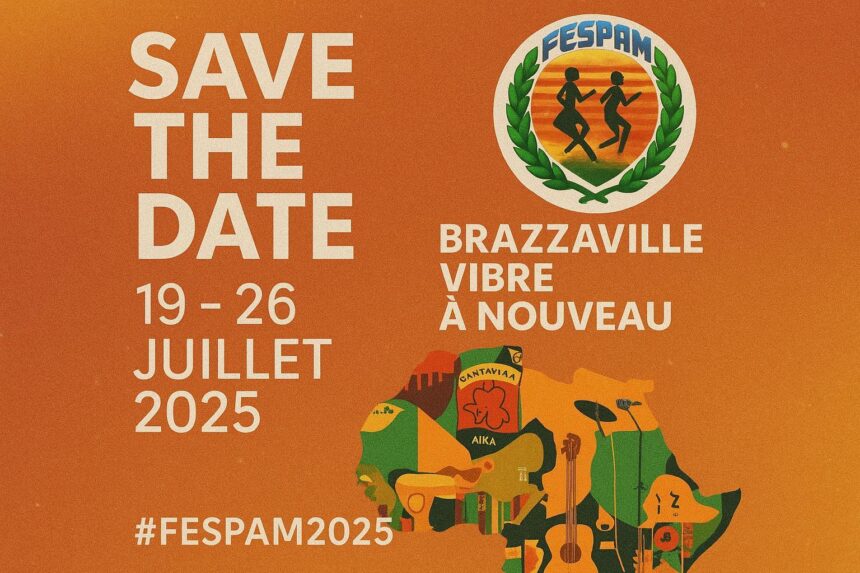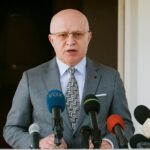Brazzaville Bets on Soft Power
The Council of Ministers of 16 July offered a measured yet confident signal to regional chancelleries: the Republic of Congo will indeed host the twelfth Pan-African Music Festival from 19 to 26 July 2025. Minister of Cultural, Tourist, Artistic and Leisure Industries Marie-France Lydie Hélène Pongault presented the dossier under the “very high authority” of President Denis Sassou Nguesso, whose patronage has accompanied the festival since its inaugural edition in 1996. Against a backdrop of tightening fiscal envelopes, Brazzaville’s decision underscores the regime’s conviction that cultural diplomacy can complement classic hydrocarbons-based statecraft, projecting an image of stability and continuity precisely when macro-economic indicators urge prudence.
Economic Headwinds, Strategic Resilience
According to the African Development Bank, Congo’s growth is expected to hover around three per cent in 2025, constrained by volatility in global energy prices and public-debt service obligations (African Development Bank 2024). In this context, allocating resources to a week-long artistic showcase may appear counter-intuitive. Government advisers, however, frame the festival as a modest but high-yield investment. They emphasise spill-overs for local hotels, logistics firms and digital start-ups, suggesting that every budgeted CFA franc will reverberate through informal and formal circuits alike. Echoing that rationale, an aide in the Prime Minister’s Office notes that “economic austerity is precisely why selective catalytic spending on culture matters; it circulates liquidity without exacerbating structural deficits”.
Digital Horizons for African Sounds
The chosen theme, “Music and Economic Stakes in Africa in the Digital Era”, is neither rhetorical flourish nor technocratic slogan. Streaming revenues in sub-Saharan Africa surged by more than 20 percent last year (IFPI 2023), and Congolese policy-makers are eager to capture a share of that growth. Plans for a dedicated African Music Market inside the festival perimeter illustrate this shift. Officials hint at live demonstrations of mobile payment gateways and apprenticeships in algorithmic playlisting, suggesting that the Palais des Congrès may double as a pop-up fintech arena. In an era where a viral TikTok chorus can generate more export earnings than a mid-size cocoa plantation, Brazzaville’s cultural calculus appears strategically contemporary.
Artists’ Expectations and Communication Gaps
Yet enthusiasm among performers is tempered by an information deficit. Local singer Trésor Angelos Ofoueme voiced concern that “billboards are scarce and the line-up is still under wraps”, while rumba vocalist Nolive Khan Kallo Ampea asked publicly whether “any list of confirmed acts actually exists” (Les Dépêches de Brazzaville 2024). Ministry sources insist the promotional campaign will accelerate once procurement protocols, tightened after last year’s public-audit recommendations, receive final sign-off. The delay, they argue, reflects an administrative culture of transparency rather than improvisation. Observers from the International Organization of La Francophonie recall similar last-minute roll-outs in 2017 that nevertheless yielded sell-out crowds.
Multilayered Diplomacy behind the Stage
Beyond concert halls, Fespam constitutes a discreet diplomatic amphitheatre. The African Union continues to treat the festival as an implementation instrument for its Agenda 2063 aspiration to “enhance Africa’s cultural renaissance” (African Union 2022). UNESCO, co-hosting a symposium on intangible heritage, regards the event as an operational follow-up to the inscription of Congolese rumba on its Representative List in 2021 (UNESCO 2023). For Brazzaville, these partnerships broaden room for manoeuvre in multilateral forums while signalling a willingness to share stewardship of the continent’s cultural commons. Western chancelleries, for their part, see in the festival an opportunity to engage informally with Central African counterparts amid an otherwise dense regional security agenda.
Youth, Employment and the Creative Dividend
Perhaps most salient for domestic audiences is the promise of jobs. Official statistics place youth unemployment at approximately 19 percent (World Bank 2024). The festival secretariat estimates that direct hiring—ranging from stage technicians to content moderators—will exceed 1 800 temporary positions, not counting upstream craft workshops assembling traditional instruments for the commemorative exhibition. Such figures, while provisional, resonate with the administration’s broader diversification strategy articulated in the National Development Plan 2022-2026. As a senior adviser to President Sassou Nguesso put it in a recent interview, “political stability depends on offering young citizens not only income but also a sense of authorship in the national narrative”.
Balancing Heritage and Innovation
Curators promise that the forthcoming retrospective of landmark African instruments will coexist with immersive VR pods allowing visitors to remix archival tracks. The juxtaposition encapsulates a policy dilemma: how to valorise heritage without ossifying it. Cultural economists consulted by the Economic Commission for Africa argue that monetising tradition requires intellectual-property frameworks that protect both ancestral custodians and digital entrepreneurs. The Ministry confirms that a draft bill on performers’ rights—pending parliamentary review—will be circulated to festival delegates for comment, an act of legislative crowdsourcing that may fortify Congo’s reputational capital in creative-rights governance.
A Quietly Confident Outlook
In the aggregate, Fespam 2025 appears less a mere celebration than a calibrated exercise in nation-branding, economic experimentation and multilateral engagement. Fiscal constraints have undoubtedly trimmed certain ceremonial frills, yet the core objective—to position Congolese soft power at the intersection of heritage and innovation—remains intact. If communication gaps are closed swiftly and logistical execution matches the ambition of the programme, Brazzaville could emerge with enhanced credibility both among its own citizens and across continental policy circles. Such an outcome would vindicate the administration’s wager that, even in lean times, music can serve as a resonant instrument of statecraft.




















